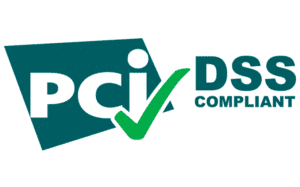Most likely, not everyone is 100% prepared for an economic crisis. Knowing what to do in these times is key for ensuring the continuity of your business. Finance managers are often expected to lead, but how to switch to crisis mode and still keep your head cool? It is time to analyze, tidy up, foster new alliances and encourage to work differently.
The global economy is heading into a recession. At least that is the fear. Economic crises are happening quite frequently, every decade in the last 50 years has seen at least 1 or 2 recessions. A period of booming business activity is ended by a sudden contraction. Early warning signs of a recession can be for example loss of business, falling consumer confidence, declining stock markets, shortening of delivery times and rising unemployment claims. As confidence recedes, so does demand. But what does that mean for your business?
A crisis is difficult to see in advance, but as a finance manager, you should always be prepared. Finance managers are expected to safeguard profitability and continuity for the company and act when forecasts cannot be met. When the economy suddenly turns, conditions can evolve rapidly. Here is how you can rise to the occasion.
Analyze and adapt forecasts
Every recession can be different, some sectors will be hit harder by the slowdown as others. How will the crisis impact revenue potential? Which product lines or customer segments will suffer? What gap will this create in the annual forecast? Finding the right data will help you better predict the impact.
Team up with the Sales department and look at leading indicators such as the number of quote requests, time to close and churn per segment. Deploy digital dashboards with key information for the management team. Replace budgeting with a short-term forecast and start mapping corrective actions.
Delve into cash and costs
As always, cash is king – maybe even more so in unpredictable times. When the crisis hits, revenue streams and credit lines can dry up quickly, so you want to reduce your cost basis to protect liquidity. Cost reporting is what the team normally spends a month on, doing so in a matter of a day may feel overwhelming. Start by making three simple buckets:
❯ Costs that are already accrued
Spend management tools (like SimpledCard) can help to provide insight into actual costs, with a press of a button you get a real-time overview of spending per project or department. If needed you can quickly freeze budgets, while completing the further analysis. Then it’s time to clean up all inefficiencies, cutting discretionary costs like catering and unnecessary travel.
❯ Costs that are planned and committed
Deploy lists to the various departments with recurring expenses, running subscriptions, ask them to look for online tools, and software programs that are no longer in use. Find out the notice periods.
❯ Costs that are planned but not yet committed, which you can potentially stop or cut
Team up with for example Marketing to check where the advertising budget is going. Cut poor quality running ads and ask if there are any opportunities for organic reach. Keep your tone light-footed and this can have a major positive impact on the relationship with the other teams.
We are happy to help you find the right online payment method for your organization.
Empower internal stakeholders
Existing business continuity plans may not be capable of handling a fast-moving crisis. The focus is on responding adequately to the situation. You need to describe the responsibilities and actions that need to be taken, so a structured response can be made. There will be a need for daily information about new organization processes, current figures and cash flow.
Presenting the management team with clear options and scenarios is a chapter in itself. Still, nothing can be worse for the atmosphere as a top-down enforced savings plan. While you want to provide direction and set clear savings targets, try to support the rest of the staff to come up with creative solutions for their own departments. Act as a facilitator, provide them with simple lists or extra information to help the other departments to make their own business decisions.
Focus on partnerships
No business can exist without clients and suppliers. While banks and government aid may provide temporary relief, a recession can offer a real opportunity in fostering new alliances with new or existing clients and suppliers. Talk to your suppliers to find out what they can do. Temporarily, there might be room for delayed payments and you can come to a fair arrangement. But maybe they will come up with new value-creating solutions, that can unlock new market potential during or after the recession.
The same goes for customers. For companies, it is crucial to prove their value in times of crisis. Take the pulse of your customers, thinking through longer-term considerations around shifts in specific sectors or product lines. How are your customer needs shifting? Help out where you can, stimulating your internal teams to come up with new propositions and solutions. Not only to your biggest customer, look across your base. Even a random act of kindness may inspire a new, future-proof relationship with a rising customer.
Never let a good crisis go to waste. A recession might be the best possible time to initiate change because it brings flaws to daylight. Once the initial crisis management is in place and you have kept your cool, you can start building again. Consider long-due transformations, such as digitizing workflows or innovating in business processes. Reach out to your network, share experiences with your peers and you may be able to collect some great ideas from them.
It is in unpredictable times, that we mostly grow together.
Keep up your spirits and good luck!
PS. Want to share your experiences with one of SimpledCard´s financial experts? Feel free to contact us!
Stay in the know
Our latest blog articles, business developments and finance news. Straight into your inbox.



